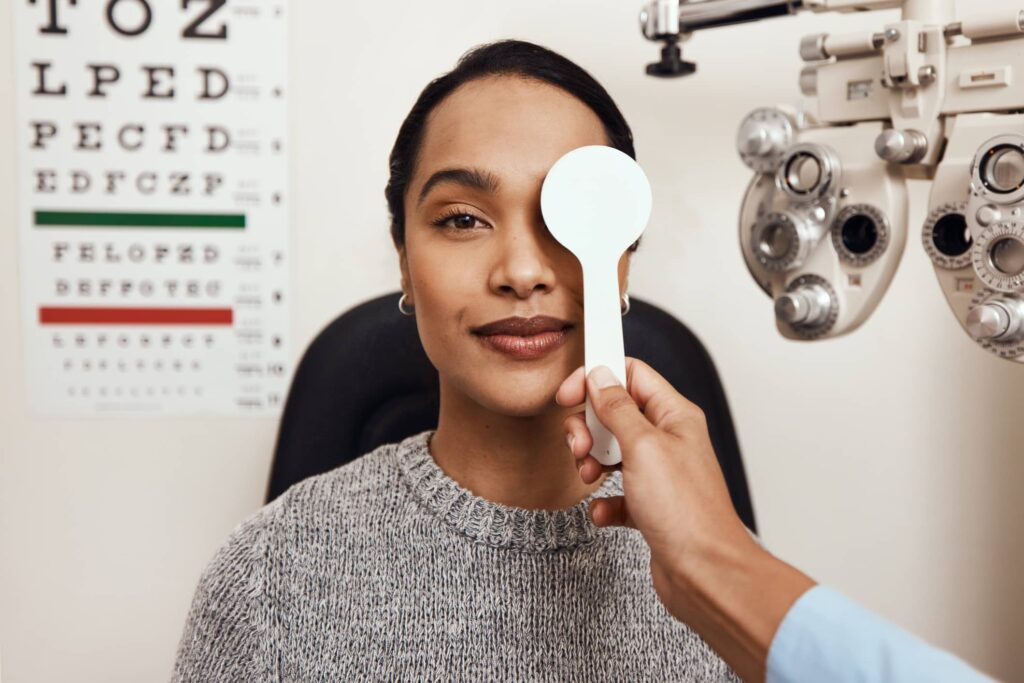All Categories
Featured
Table of Contents
Eye wellness is a critical element of total health, and normal eye tests play a crucial role in keeping good vision throughout life. Each age has details needs and dangers associated with eye wellness, making it vital to adhere to tailored referrals for eye evaluations. Below's an in-depth overview of just how often eye examinations ought to be scheduled for different age teams.
After the very first exam, kids must have a 2nd eye exam around age 3, when they can much better join testing and analysis. If no vision issues are identified, the following examination is recommended before beginning school, usually around age 5. Early discovery of concerns can result in timely intervention and support healthy visual advancement.
Parents should look for signs of vision problems, such as trouble reading the blackboard, scrunching up your eyes, or grumbling of migraines. It's essential to arrange an eye test without delay if any of these signs and symptoms emerge. Youngsters who join sports may profit from yearly eye examinations to ensure optimal aesthetic efficiency and safety during tasks.
![]()
Young people typically experience digital eye strain as a result of comprehensive display time, causing signs and symptoms like dryness and pain. Looking for an eye exam is vital if you discover these symptoms. An eye care specialist can provide solutions, such as computer glasses or way of life modifications, to relieve strain.
For individuals with wellness conditions like diabetes mellitus or hypertension, even more constant exams might be needed. Normal monitoring is vital for early discovery and administration of potential complications that can impact vision.
Seniors may likewise experience adjustments in their aesthetic perception, such as difficulty seeing in low light or distinguishing colors. Normal eye exams enable timely treatment and help preserve independence and lifestyle.
Babies (0-2 Years)
Infants undergo substantial visual advancement in their early years, making early eye evaluations important. The American Academy of Pediatric medicine recommends that children have their first eye test at concerning six months of age. This preliminary check out helps identify any type of possible vision troubles, such as strabismus (crossed eyes) or hereditary cataracts, which can affect growth otherwise resolved early.After the very first exam, kids must have a 2nd eye exam around age 3, when they can much better join testing and analysis. If no vision issues are identified, the following examination is recommended before beginning school, usually around age 5. Early discovery of concerns can result in timely intervention and support healthy visual advancement.
Kids (3-18 Years)
For school-aged youngsters, regular eye exams are vital for both academic success and general well-being. Children need to have their eyes inspected every one to two years, depending on their specific needs. Institutions commonly conduct vision screenings, however these do not change thorough eye tests by an eye care specialist.Parents should look for signs of vision problems, such as trouble reading the blackboard, scrunching up your eyes, or grumbling of migraines. It's essential to arrange an eye test without delay if any of these signs and symptoms emerge. Youngsters who join sports may profit from yearly eye examinations to ensure optimal aesthetic efficiency and safety during tasks.
Young Person (19-39 Years)
During young adulthood, numerous individuals enjoy fairly secure vision, yet that doesn't imply eye care can be ignored. Young grownups ought to schedule detailed eye exams every 2 years. Those that use call lenses or have a family members history of eye illness need to consider annual tests.
Young people typically experience digital eye strain as a result of comprehensive display time, causing signs and symptoms like dryness and pain. Looking for an eye exam is vital if you discover these symptoms. An eye care specialist can provide solutions, such as computer glasses or way of life modifications, to relieve strain.
Adults (40-64 Years)
As people enter their 40s, changes in vision can become more noticeable, specifically presbyopia, a condition that makes it challenging to concentrate on close objects. Grownups in this age must schedule eye exams every one to 2 years. This is also the age when numerous eye diseases, such as glaucoma and diabetic retinopathy, can start to create.For individuals with wellness conditions like diabetes mellitus or hypertension, even more constant exams might be needed. Normal monitoring is vital for early discovery and administration of potential complications that can impact vision.
Elders (65 Years and Older)
Senior citizens go to an enhanced risk for various eye illness, including cataracts, age-related macular deterioration, and glaucoma. It's recommended that people matured 65 and older have an eye test at least annually. Early detection of these problems is vital, as many can be dealt with efficiently if captured early.Seniors may likewise experience adjustments in their aesthetic perception, such as difficulty seeing in low light or distinguishing colors. Normal eye exams enable timely treatment and help preserve independence and lifestyle.
Conclusion.
Prioritizing eye care and normal exams makes sure that individuals can delight in clear vision and a much better high quality of life, making eye health an essential facet of lifelong wellness. Routine assessments with an eye treatment professional will pave the way for healthier eyes and a brighter future.Table of Contents
Latest Posts
A Historical Coastline Destination with Modern Thrills
Published en
1 min read
Selecting the Right Place: What to Think about for Weddings, Meetings, and Occasions
Published en
1 min read
An Extravagant Getaway: The Claridge Indoor Swimming Pool
Published en
1 min read
More
Latest Posts
A Historical Coastline Destination with Modern Thrills
Published Apr 08, 25
1 min read
Selecting the Right Place: What to Think about for Weddings, Meetings, and Occasions
Published Mar 22, 25
1 min read
An Extravagant Getaway: The Claridge Indoor Swimming Pool
Published Feb 10, 25
1 min read